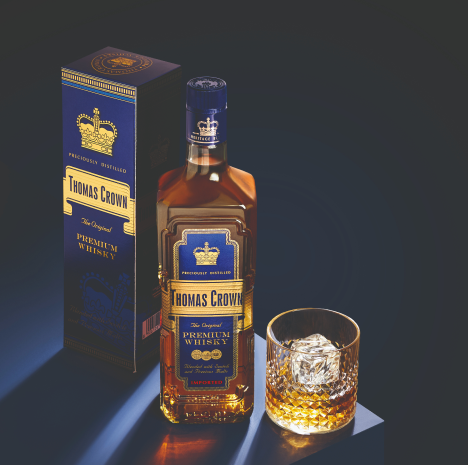
Essential Bar Tools Guide: What You Really Need vs What You Can Skip
The fundamentals of mixology haven’t changed much in over a century, yet the market for specialized bar tools seems to expand every year. And if you’ve watched skilled bartenders at work, you might think you need every single one of those tools.
As someone who’s watched the evolution of cocktail culture from both sides of the bar, I can tell you with certainty that the tools that truly matter could fit in a single drawer. The most valuable lesson from professional mixing is knowing which tools earn their keep and which are merely decorative.
Let’s break down the must-haves from the nice-to-haves so you can invest wisely and skip the unnecessary clutter.
The Non-Negotiables
1. Quality Cocktail Shaker
A good shaker is the backbone of your home bar. It handles everything from margaritas to mojitos, and it’s worth getting right the first time. While you’ll find beautiful silver-plated or glass shakers on display, there’s a reason professionals stick with stainless steel. They’re durable, won’t corrode from acidic ingredients, and can handle being dropped occasionally (which will happen).
Choose a wide-mouthed stainless steel shaker with a tight-fitting lid. If a proper shaker isn’t available, a wide-mouthed glass bottle or plastic container with a tight-fitting lid works in a pinch.
2. Measuring Tools
Precision makes the difference between a balanced cocktail and one that’s too sweet, too strong, or just off. Professional bartenders may free-pour with confidence, but they developed that skill through measuring countless drinks first.
You’ll need:
A standard jigger or peg measure
Measuring spoons for smaller quantities
Tablespoons for quick measurements
3. Bar Spoon
Those extra-long, twisted spoons aren’t just for presentation. The length helps you reach the bottom of tall glasses, while the twisted handle makes stirring smoother and more efficient. For stirred cocktails like Manhattans or Negronis, proper stirring technique makes all the difference.
4. Strainers
Nobody wants ice shards or muddled fruit bits floating in their finished cocktail. A good strainer holds back the solids while letting your perfectly mixed drink flow through. While professional bars often use specialized Hawthorne strainers (the ones with the spring), a simple kitchen strainer works perfectly fine for most home bartending needs. If your shaker doesn’t have a built-in strainer, this is essential.
5. Citrus Juicer
Fresh juice makes a world of difference in cocktails. A simple handheld lime squeezer will extract significantly more juice than manual squeezing, saving you time and ingredients. To extract maximum juice from fruit, soak them in hot water for a few minutes before squeezing.
6. Quality Knife & Cutting Board
Clean, precise cuts make for better garnishes and ingredient preparation. You don’t need a separate set – a good quality paring knife and cutting board from your kitchen will work perfectly
Worth the Investment
1. Blender or Hand Blender
For frozen drinks and smooth slushes, a blender is essential. If you’re going to invest, choose a hand blender with at least 600 watts of power. Detachable ones are easier to clean since you don’t need to take the whole unit to the sink. For occasional blended drinks, your regular kitchen blender will work, but remember to use crushed ice to protect the blades.
2. Ice Bucket & Tools
Good cocktails need good ice. An insulated ice bucket keeps your ice from melting too quickly, while an ice crusher or even a clean towel and hammer can help create crushed ice for specific drinks.
Pro tip: If there is one thing you cannot afford to have in short supply when mixing drinks, it is ice. Always make sure to use “aged ice” – ice that’s frozen hard and not already melting. This maintains the texture and temperature of your drink without watering it down.
3. Bottle Openers and Can Openers
Basic but necessary when dealing with various ingredients. A simple multi-tool with both functions works perfectly.
What You Can Skip
1. Fancy Muddlers
For drinks requiring crushed herbs, fruits, or spices (like mojitos or old fashioneds), a muddler helps release essential oils and flavors. While dedicated wooden or acrylic muddlers are nice, the back of a wooden spoon works just fine.
2. Specialty Single-Use Tools
Specialized tools like grapefruit spoons, citrus zesters, cherry pitters, or strawberry hullers are nice but unnecessary for home use. A good peeling knife can handle most garnish preparation.
3. Expensive Bar Mats
While they look professional, bar mats aren’t essential for home use. A simple kitchen towel works just as well for containing spills and protecting surfaces.
Remember, the best tools are the ones you’ll actually use. Start with the basics and add specialty items as your interests evolve. Many professional bartenders started with makeshift equipment – a mason jar can work as a shaker in a pinch, and any long spoon can sub for a bar spoon.
The quality of your ingredients and your technique will always matter more than having every gadget on the market. Master the basics first, then expand your collection as needed!
